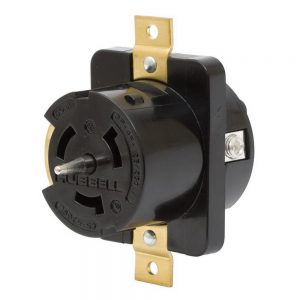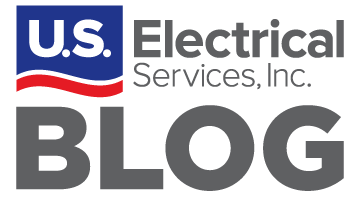
You probably don’t think much about your home electrical wiring until something goes wrong. Lights may flicker, fuses may trip outlets may spark…or maybe you are just dealing with an older system or need more power for an increasing number of appliances and devices. Rewiring your home can be a big job, but it is often necessary and it can increase the value of your home. Here are some helpful hints and how to improve your home electrical wiring.
Is Your Home Electrical Wiring Unsafe?

There are times when it is necessary to replace your home electrical wiring due to safety issues. Old houses may have older wiring that can lead to fire hazards. This is especially true if your home has knob and tube wirings that use materials that are likely to wear down over time and overheat.
Aluminum wiring can also be dangerous. This type of wiring, which was popular in the 60’s and 70’s, used connections that can loosen over time leading to overheating.
Here are some signs that indicate that your home electrical wiring needs to be updated:
- Breakers that trip and fuses that blow often
- A tingling sensation when touching an appliance
- Flickering or dimming lights
- A persistent burning smell coming from a room or appliance
- Warm, discolored or sparking outlets
- The presence of two-pronged, ungrounded outlets
- No GFCI’s present in bathrooms, kitchens and other rooms where water and electricity could come in contact
How to Improve Your Home Electrical Wiring
 There are a few ways to make improvements to your home electrical wiring, some more complicated than others. Adding GFCI outlets can be one way. If you are dealing with aluminum wiring, the addition of copper connectors called pigtails can help resolve problems if installed at receptacles and circuit breakers. If you need more power, think about installing more outlets and circuits, a safer alternative to power strips and extension cords.
There are a few ways to make improvements to your home electrical wiring, some more complicated than others. Adding GFCI outlets can be one way. If you are dealing with aluminum wiring, the addition of copper connectors called pigtails can help resolve problems if installed at receptacles and circuit breakers. If you need more power, think about installing more outlets and circuits, a safer alternative to power strips and extension cords.
In some cases, a complete home rewire will be your only option. These are major projects and can come at a considerable expense to home owners, but they are sometimes unavoidable. The reason these jobs are so expensive is because they require labor which entails opening up entire walls, replacing old wires with new ones, connecting them to each switch and outlet and then closing the walls back up. Although the cost of a whole house rewire may vary, it could run some homeowners several thousand dollars. If possible, rewiring should be done during a remodeling project, when walls may be opened up for other reasons.
Improving your home electrical wiring can be difficult to do, but it is a necessary step in keeping your home safe. In fact, some insurance companies will refuse to insure houses with outdated or unsafe wiring while others will charge higher premiums if this is the case. Whatever your situation may be, it is important to make sure your home meets the requirements of updated home electrical wiring needs. Hire a reputable electrician and use high quality materials to keep your home and family safe.

